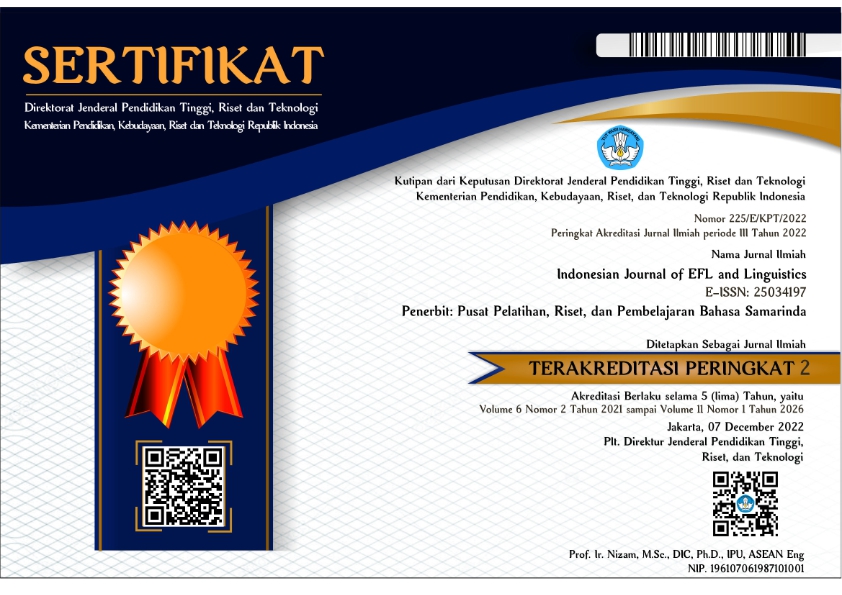Challenges in Implementing the Information Gap Technique to Enhance the Indonesian EFL Students' Speaking Skills
Abstract
Even though the Independent Curriculum suggests teachers conduct speaking activities in class, the real situation is quite the opposite. Students rarely speak English in class; hence, students still lack the ability to speak English. This study aims to describe the challenges in implementing the Information Gap Technique to enhance students' speaking skills in a vocational high school located in Sleman. Employing Classroom Action Research, the research unfolds across four iterative stages: planning, action, observation, and reflection. This study used interviews, observations, and documentation as primary instruments. This is qualitative analysis with interactive model analysis and thematic analysis as data analysis. The findings illuminate several hurdles faced by both teachers and students. Teachers confront difficulties in classroom management, struggling to monitor and assess students simultaneously. Meanwhile, students encounter challenges in peer assessment and formulating questions, along with linguistic obstacles in pronunciation and grammar. The study concludes that an effective strategy to mitigate these challenges involves teachers actively circulating the classroom and engaging in peer assessment. This approach enables teachers to identify and address individual student difficulties promptly. The research suggests that while IGT proves effective in enhancing speaking skills and boosting confidence, teachers should judiciously incorporate it, considering both its advantages and drawbacks. The recommendation encourages periodic utilisation of the technique, with teachers being mindful of the need for a balanced approach that addresses the identified challenges, thereby maximising the benefits of IGT in enhancing students' speaking abilities.
Copyright (c) 2024 Indonesian Journal of EFL and Linguistics

This work is licensed under a Creative Commons Attribution-NonCommercial-ShareAlike 4.0 International License.




